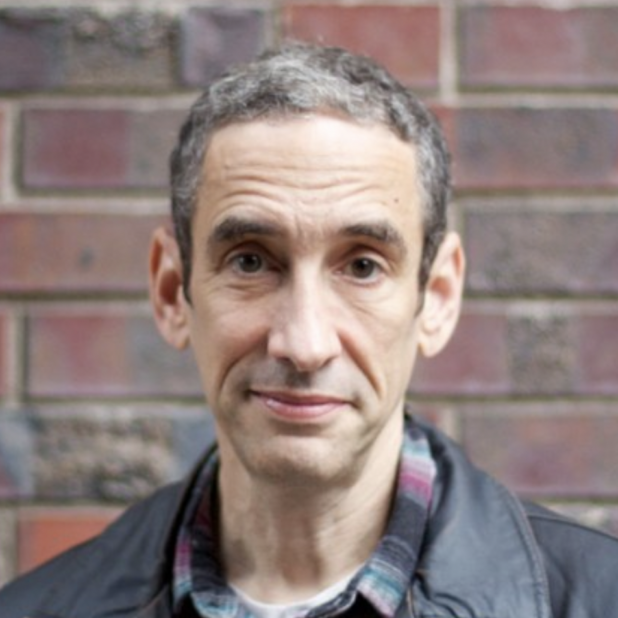
Nothing that elites ever do could be bad, because there isn’t any conspiracies, so everything they always do is good, no matter what.
After all, these are the same people fighting for trans children and Ukraine Democracy. They are willing to freeze to death for the Ukraine. They will cut their sons’ dicks off. Well, they won’t do it, I mean, you will be doing it, but they’re the ones who make the choice.
Douglas Rushkoff, that Jew who writes about the sociology of a technocratic society of which you are probably aware of, writes for The Guardian:
As a humanist who writes about the impact of digital technology on our lives, I am often mistaken for a futurist. The people most interested in hiring me for my opinions about technology are usually less concerned with building tools that help people live better lives in the present than they are in identifying the Next Big Thing through which to dominate them in the future. I don’t usually respond to their inquiries. Why help these guys ruin what’s left of the internet, much less civilisation?
Still, sometimes a combination of morbid curiosity and cold hard cash is enough to get me on a stage in front of the tech elite, where I try to talk some sense into them about how their businesses are affecting our lives out here in the real world. That’s how I found myself accepting an invitation to address a group mysteriously described as “ultra-wealthy stakeholders”, out in the middle of the desert.
A limo was waiting for me at the airport. As the sun began to dip over the horizon, I realised I had been in the car for three hours. What sort of wealthy hedge-fund types would drive this far from the airport for a conference? Then I saw it. On a parallel path next to the highway, as if racing against us, a small jet was coming in for a landing on a private airfield. Of course.
The next morning, two men in matching Patagonia fleeces came for me in a golf cart and conveyed me through rocks and underbrush to a meeting hall. They left me to drink coffee and prepare in what I figured was serving as my green room. But instead of me being wired with a microphone or taken to a stage, my audience was brought in to me. They sat around the table and introduced themselves: five super-wealthy guys – yes, all men – from the upper echelon of the tech investing and hedge-fund world. At least two of them were billionaires. After a bit of small talk, I realised they had no interest in the speech I had prepared about the future of technology. They had come to ask questions.
They started out innocuously and predictably enough. Bitcoin or ethereum? Virtual reality or augmented reality? Who will get quantum computing first, China or Google? Eventually, they edged into their real topic of concern: New Zealand or Alaska? Which region would be less affected by the coming climate crisis? It only got worse from there. Which was the greater threat: global warming or biological warfare? How long should one plan to be able to survive with no outside help? Should a shelter have its own air supply? What was the likelihood of groundwater contamination? Finally, the CEO of a brokerage house explained that he had nearly completed building his own underground bunker system, and asked: “How do I maintain authority over my security force after the event?” The event. That was their euphemism for the environmental collapse, social unrest, nuclear explosion, solar storm, unstoppable virus, or malicious computer hack that takes everything down.
It’s funny how Jews use “climate crisis” as a euphemism for “societal collapse.”
It’s a crisis of the social climate, mayhaps.
Jews are such rats.
This single question occupied us for the rest of the hour. They knew armed guards would be required to protect their compounds from raiders as well as angry mobs. One had already secured a dozen Navy Seals to make their way to his compound if he gave them the right cue. But how would he pay the guards once even his crypto was worthless? What would stop the guards from eventually choosing their own leader?
The billionaires considered using special combination locks on the food supply that only they knew. Or making guards wear disciplinary collars of some kind in return for their survival. Or maybe building robots to serve as guards and workers – if that technology could be developed “in time”.
I tried to reason with them. I made pro-social arguments for partnership and solidarity as the best approaches to our collective, long-term challenges. The way to get your guards to exhibit loyalty in the future was to treat them like friends right now, I explained. Don’t just invest in ammo and electric fences, invest in people and relationships. They rolled their eyes at what must have sounded to them like hippy philosophy.
This was probably the wealthiest, most powerful group I had ever encountered. Yet here they were, asking a Marxist media theorist for advice on where and how to configure their doomsday bunkers. That’s when it hit me: at least as far as these gentlemen were concerned, this was a talk about the future of technology.
Taking their cue from Tesla founder Elon Musk colonising Mars, Palantir’s Peter Thiel reversing the ageing process, or artificial intelligence developers Sam Altman and Ray Kurzweil uploading their minds into supercomputers, they were preparing for a digital future that had less to do with making the world a better place than it did with transcending the human condition altogether. Their extreme wealth and privilege served only to make them obsessed with insulating themselves from the very real and present danger of climate change, rising sea levels, mass migrations, global pandemics, nativist panic and resource depletion. For them, the future of technology is about only one thing: escape from the rest of us.
These people once showered the world with madly optimistic business plans for how technology might benefit human society. Now they’ve reduced technological progress to a video game that one of them wins by finding the escape hatch. Will it be Jeff Bezos migrating to space, Thiel to his New Zealand compound, or Mark Zuckerberg to his virtual metaverse? And these catastrophising billionaires are the presumptive winners of the digital economy – the supposed champions of the survival-of-the-fittest business landscape that’s fuelling most of this speculation to begin with.
What I came to realise was that these men are actually the losers. The billionaires who called me out to the desert to evaluate their bunker strategies are not the victors of the economic game so much as the victims of its perversely limited rules. More than anything, they have succumbed to a mindset where “winning” means earning enough money to insulate themselves from the damage they are creating by earning money in that way. It’s as if they want to build a car that goes fast enough to escape from its own exhaust.
Yet this Silicon Valley escapism – let’s call it The Mindset – encourages its adherents to believe that the winners can somehow leave the rest of us behind.
Never before have our society’s most powerful players assumed that the primary impact of their own conquests would be to render the world itself unliveable for everyone else. Nor have they ever before had the technologies through which to programme their sensibilities into the very fabric of our society. The landscape is alive with algorithms and intelligences actively encouraging these selfish and isolationist outlooks. Those sociopathic enough to embrace them are rewarded with cash and control over the rest of us. It’s a self-reinforcing feedback loop. This is new.
Amplified by digital technologies and the unprecedented wealth disparity they afford, The Mindset allows for the easy externalisation of harm to others, and inspires a corresponding longing for transcendence and separation from the people and places that have been abused.
Instead of just lording over us for ever, however, the billionaires at the top of these virtual pyramids actively seek the endgame. In fact, like the plot of a Marvel blockbuster, the very structure of The Mindset requires an endgame. Everything must resolve to a one or a zero, a winner or loser, the saved or the damned. Actual, imminent catastrophes from the climate emergency to mass migrations support the mythology, offering these would-be superheroes the opportunity to play out the finale in their own lifetimes. For The Mindset also includes a faith-based Silicon Valley certainty that they can develop a technology that will somehow break the laws of physics, economics and morality to offer them something even better than a way of saving the world: a means of escape from the apocalypse of their own making.
…
Many of those seriously seeking a safe haven simply hire one of several prepper construction companies to bury a prefab steel-lined bunker somewhere on one of their existing properties. Rising S Company in Texas builds and installs bunkers and tornado shelters for as little as $40,000 for an 8ft by 12ft emergency hideout all the way up to the $8.3m luxury series “Aristocrat”, complete with pool and bowling lane. The enterprise originally catered to families seeking temporary storm shelters, before it went into the long-term apocalypse business. The company logo, complete with three crucifixes, suggests their services are geared more toward Christian evangelist preppers in red-state America than billionaire tech bros playing out sci-fi scenarios.
There’s something much more whimsical about the facilities in which most of the billionaires – or, more accurately, aspiring billionaires – actually invest. A company called Vivos is selling luxury underground apartments in converted cold war munitions storage facilities, missile silos, and other fortified locations around the world. Like miniature Club Med resorts, they offer private suites for individuals or families, and larger common areas with pools, games, movies and dining. Ultra-elite shelters such as the Oppidum in the Czech Republic claim to cater to the billionaire class, and pay more attention to the long-term psychological health of residents. They provide imitation of natural light, such as a pool with a simulated sunlit garden area, a wine vault, and other amenities to make the wealthy feel at home.
On closer analysis, however, the probability of a fortified bunker actually protecting its occupants from the reality of, well, reality, is very slim. For one, the closed ecosystems of underground facilities are preposterously brittle. For example, an indoor, sealed hydroponic garden is vulnerable to contamination. Vertical farms with moisture sensors and computer-controlled irrigation systems look great in business plans and on the rooftops of Bay Area startups; when a palette of topsoil or a row of crops goes wrong, it can simply be pulled and replaced. The hermetically sealed apocalypse “grow room” doesn’t allow for such do-overs.
Just the known unknowns are enough to dash any reasonable hope of survival. But this doesn’t seem to stop wealthy preppers from trying. The New York Times reported that real estate agents specialising in private islands were overwhelmed with inquiries during the Covid-19 pandemic. Prospective clients were even asking about whether there was enough land to do some agriculture in addition to installing a helicopter landing pad. But while a private island may be a good place to wait out a temporary plague, turning it into a self-sufficient, defensible ocean fortress is harder than it sounds. Small islands are utterly dependent on air and sea deliveries for basic staples. Solar panels and water filtration equipment need to be replaced and serviced at regular intervals. The billionaires who reside in such locales are more, not less, dependent on complex supply chains than those of us embedded in industrial civilisation.
Surely the billionaires who brought me out for advice on their exit strategies were aware of these limitations. Could it have all been some sort of game? Five men sitting around a poker table, each wagering his escape plan was best?
But if they were in it just for fun, they wouldn’t have called for me. They would have flown out the author of a zombie apocalypse comic book. If they wanted to test their bunker plans, they’d have hired a security expert from Blackwater or the Pentagon. They seemed to want something more. Their language went far beyond questions of disaster preparedness and verged on politics and philosophy: words such as individuality, sovereignty, governance and autonomy.
That’s because it wasn’t their actual bunker strategies I had been brought out to evaluate so much as the philosophy and mathematics they were using to justify their commitment to escape. They were working out what I’ve come to call the insulation equation: could they earn enough money to insulate themselves from the reality they were creating by earning money in this way? Was there any valid justification for striving to be so successful that they could simply leave the rest of us behind –apocalypse or not?
Or was this really their intention all along? Maybe the apocalypse is less something they’re trying to escape than an excuse to realise The Mindset’s true goal: to rise above mere mortals and execute the ultimate exit strategy.
So, look: you should be aware of what these Jews are saying.
And you should be aware that they’re not just saying it at the World Economic Forum – they’re just publishing it in The Guardian.
Of course, the WEF is not secretive anymore – they post all of their panels on their YouTube channel, and post all their white papers on their official website.
But publishing in The Guardian means they want the goyim to know – I guess?
There’s no other obvious reason.
Saying it’s about global warming – those rascals. It’s just almost too much.
 Daily Stormer The Most Censored Publication in History
Daily Stormer The Most Censored Publication in History





